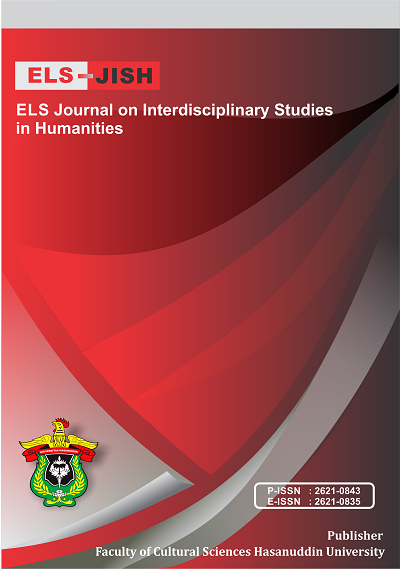Social Impacts of Industrial Revolution in Charles Dickens’s Oliver Twist
DOI:
https://doi.org/10.34050/elsjish.v4i1.13395Keywords:
Industrial Revolution, social impacts, society, transformation processAbstract
Literature from across academic disciplines has demonstrated significant links between emotional valence and language. For example, Whissell’s Dictionary of Affect in Language defines three dimensions upon which the emotionality of words is describable, and Ekman’s Theories of Emotion include the perception and internalization of facial expressions. The present study seeks to expand upon these works by exploring whether holding facial expressions alters the fundamental speech properties of spoken language. Nineteen (19) participants were seated in a soundproof chamber and were asked to speak a series of pseudowords containing target phonemes. The participants spoke the pseudowords either holding no facial expression, smiling, or frowning, and the utterances recorded using a high-definition microphone and phonologically analyzed using PRAAT analysis software. Analyses revealed a pervasive gender differences in frequency variables, where males showed lower fundamental but higher formant frequencies compared to females. Significant main effects were found within the fundamental and formant frequencies, but no effects were discerned for the intensity variable. While intricate, these results are indicative of an interaction between the activity of facial musculature when reflecting emotional valence and the sound properties of speech uttered simultaneously.
References
References
Aminah. (2015). Social Injustice as Reflected in Charles Dickens’ Oliver Twist. Unpublished thesis. State of University Hasanuddin Makassar
Bruin. (2011). We’ve taken to you so strong’ Oliver Twist in Norway. Unpublished thesis. University of Oslo
Cragun T. (2006). Introduction to Sociology, (online). http://en.wikibooks.org/wiki/Introduction to Sociology. (Accessed on February 16, 2016)
Didelyte. (2008). Charles Dickens’ Oliver Twist a thief or a Victim?. Unpublished Thesis. State of University Islandia
Eagleton. (2005). The English Novel an Introduction. Australia: Blackwell Publishing LTD
Hoaglind. (1960). Learn World History: The Easy Way. London: Greenstone Press.
Rahman, F, Amir, P., & Tammasse. (2019). Trends in Reading Literary Fiction in Print and Cyber Media by Undergraduate Students of Hasanuddin University. International Journal of Education and Practice, 7(2), 66–77.
Rahman, Fathu. (2017). Cyber Literature: A Reader Writer Interactivity. International Journal of Social Sciences & Educational Studies, 3(4), 156–164. https://doi.org/https://doi.org/10.23918/ijsses.v3i4p156
Rahman, Fathu. (2018). Literature of the Minority in South Sulawesi Endangered. Medwell Journals Medwell Publications, 13(14), 820–825.
McDonnell et al. (1985). England in Literature. USA: Scott, Foresman and Company.
Watt. (2001). Sociology of Literature. Berkeley: University of California
Wellek & Warren. (1956). Theory of Literature. New York: Harcourt, Brace & World, In
Widowson. (2004). The Palgrave Guide to English Literature and its Contexts. New York: Palgrave McMillian.
Wulandari. (2014). Protest Against Child Exploitation Reflected in Charles Dickens’ Oliver Twist. Unpublished Thesis. State of University Muhammadiyah Surakarta.
Downloads
Published
How to Cite
Issue
Section
License
Copyright (c) 2021 Hasrida Ardin

This work is licensed under a Creative Commons Attribution-NonCommercial-ShareAlike 4.0 International License.






